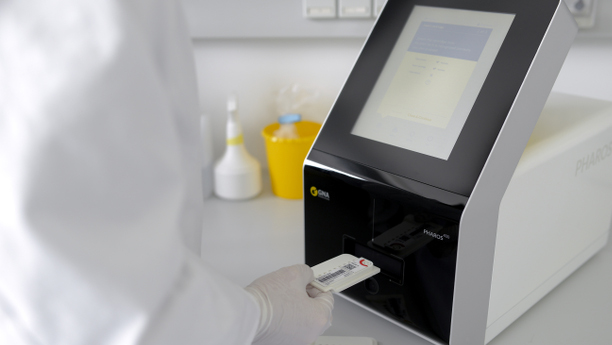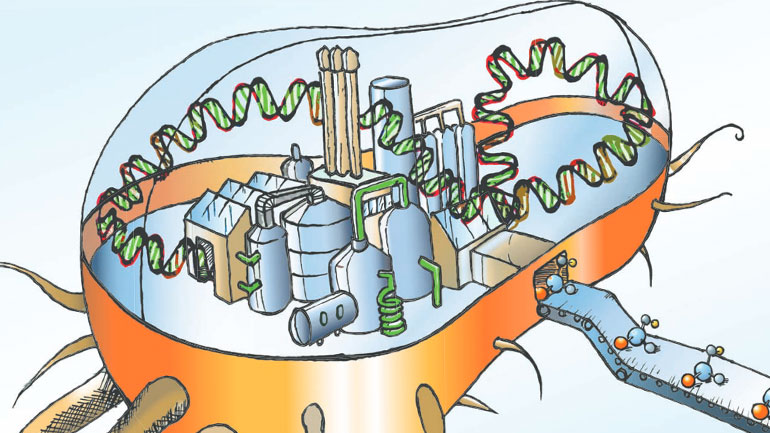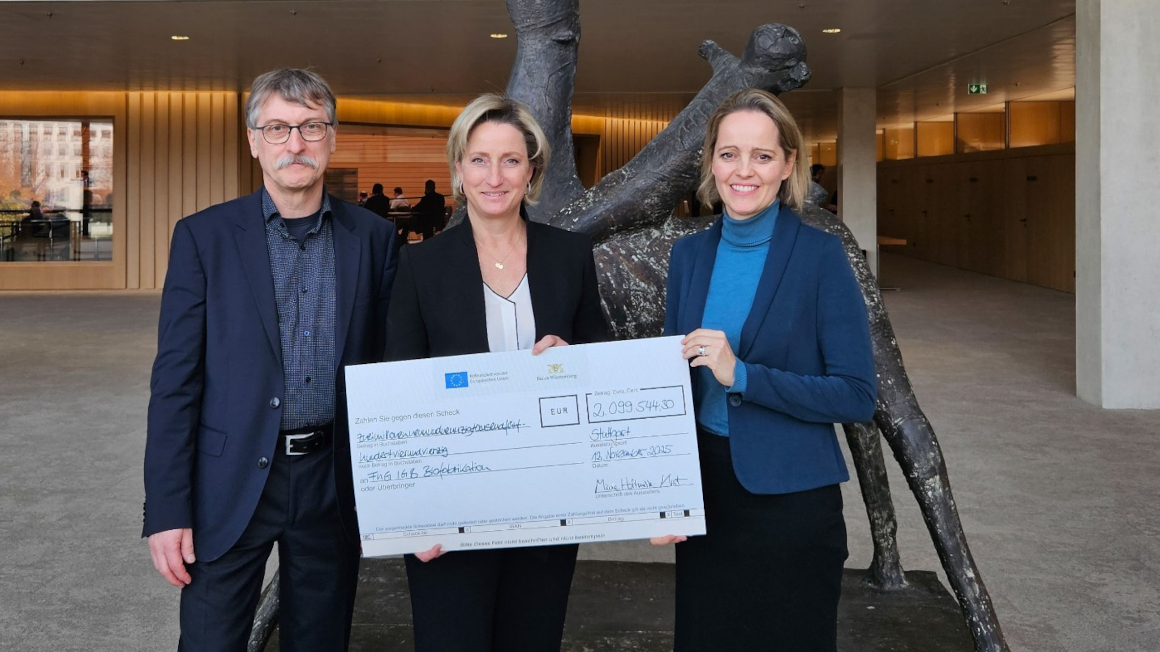How the rapid Corona PCR Test works
The Martinsried-based company GNA Biosolutions plans to launch an ultra-fast corona test based on its laser PCR. The BMBF has funded the development of the method.

In order to detect acute infection with the corona virus, thousands of tests based on the polymerase chain reaction (PCR) are performed daily. With the help of this molecular copy method, the genetic material of the virus, which consists of the biomolecule ribonucleic acid (RNA), is detected in the swabs. The few virus RNA molecules are first transcribed into DNA and then amplified by the PCR in numerous copy cycles. Only then can the existence of the viral genetic material in the samples be determined. Experts refer to this as real-time RT-PCR. It takes four to five hours in the laboratory to obtain a final result.
Test result in 15 minutes
The Munich-based company GNA Biosolutions has developed a particularly rapid coronavirus test which, according to the company, is expected to be introduced to the market in June at the latest. The test can provide a definite result within 15 minutes as to whether someone is infected with SARS-CoV-2, the head of the company, Federico Bürsgens, told Süddeutsche Zeitung. To gain this much time, the so-called laser PCR method is applied, which is used in repeated heating and cooling cycles. In the PCR method used up to now, the entire reaction liquid is heated, although only a few DNA molecules need to be heated.
Laser pulses heat gold nanoparticles
In a biooekonomie.de portrait, GNA Biosolutions' head of research Joachim Stehr describes the highlight of the laser PCR method he co-developed: "We keep the entire liquid at a constant temperature. We use short laser pulses to heat gold nanoparticles to which the DNA segments to be amplified are attached," said Stehr. The short heating of the nanoparticles - which only lasts a few microseconds - works about one million times faster than the previous heating of the entire liquid. The entire process can be completed within 15 minutes, says GNA Biosolutions.
Technology development publicly funded
The company is a spin-off from the Department of Photonics and Optoelectronics at the Ludwig-Maximilians-University of Munich. GNA Biosolutions has been supported several times by the German government in its company development. Among them the Federal Ministry of Economics and the Federal Ministry of Education and Research (BMBF). As part of the "KMU-innovativ: Biotechnologie - BioChance" funding measure, the BMBF has provided the development of laser PCR with approximately 300,000 euros.
GNA Biosolutions is now working under high pressure on the production of mobile test devices that could, for example, be used at factory gates in order to quickly screen company employees. The Institute of Microbiology of the German Armed Forces and an automotive supplier from Middle Franconia are involved in the development of the devices. The project is funded by the Bavarian Ministry of Economic Affairs.
pg/um


